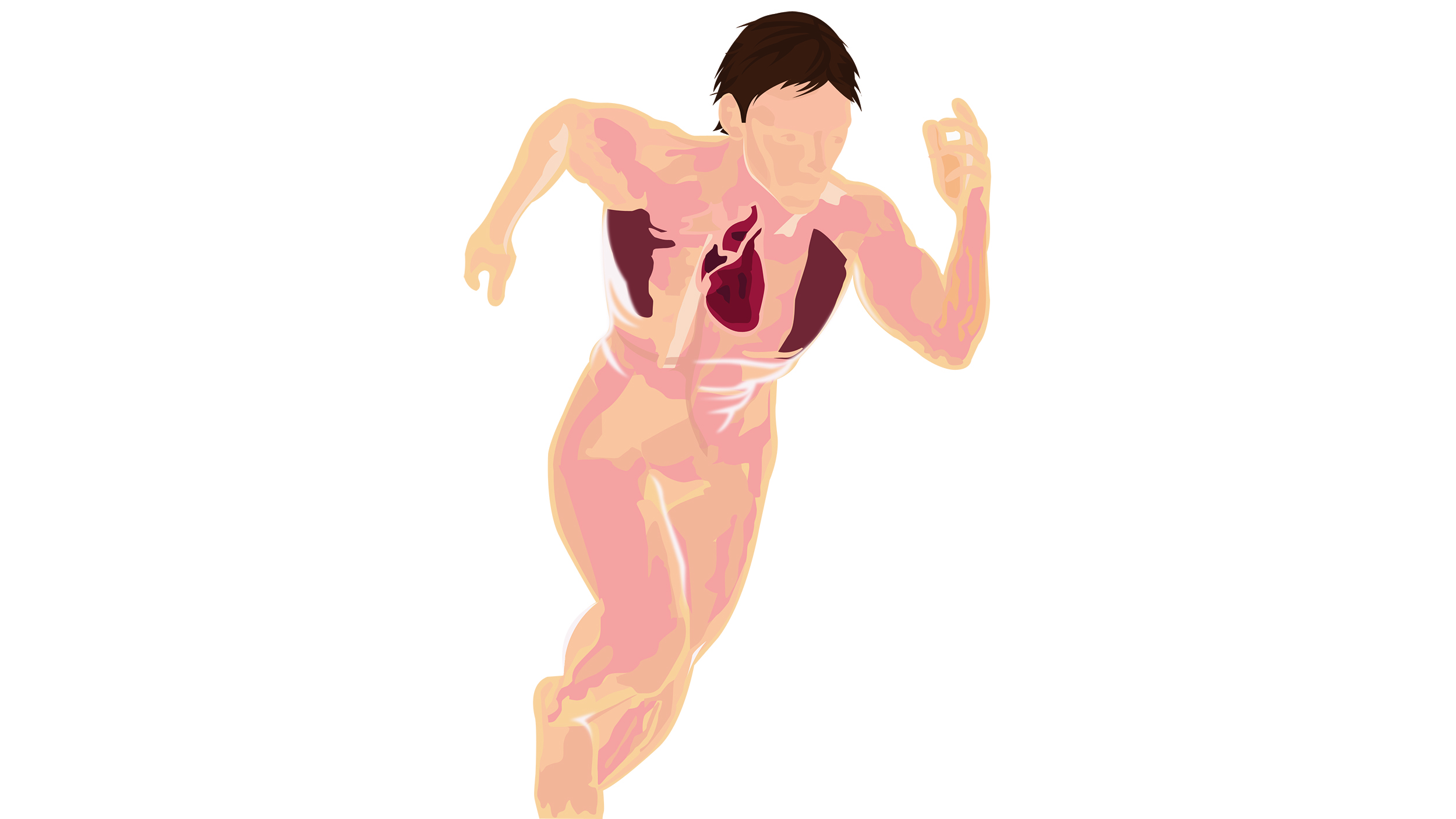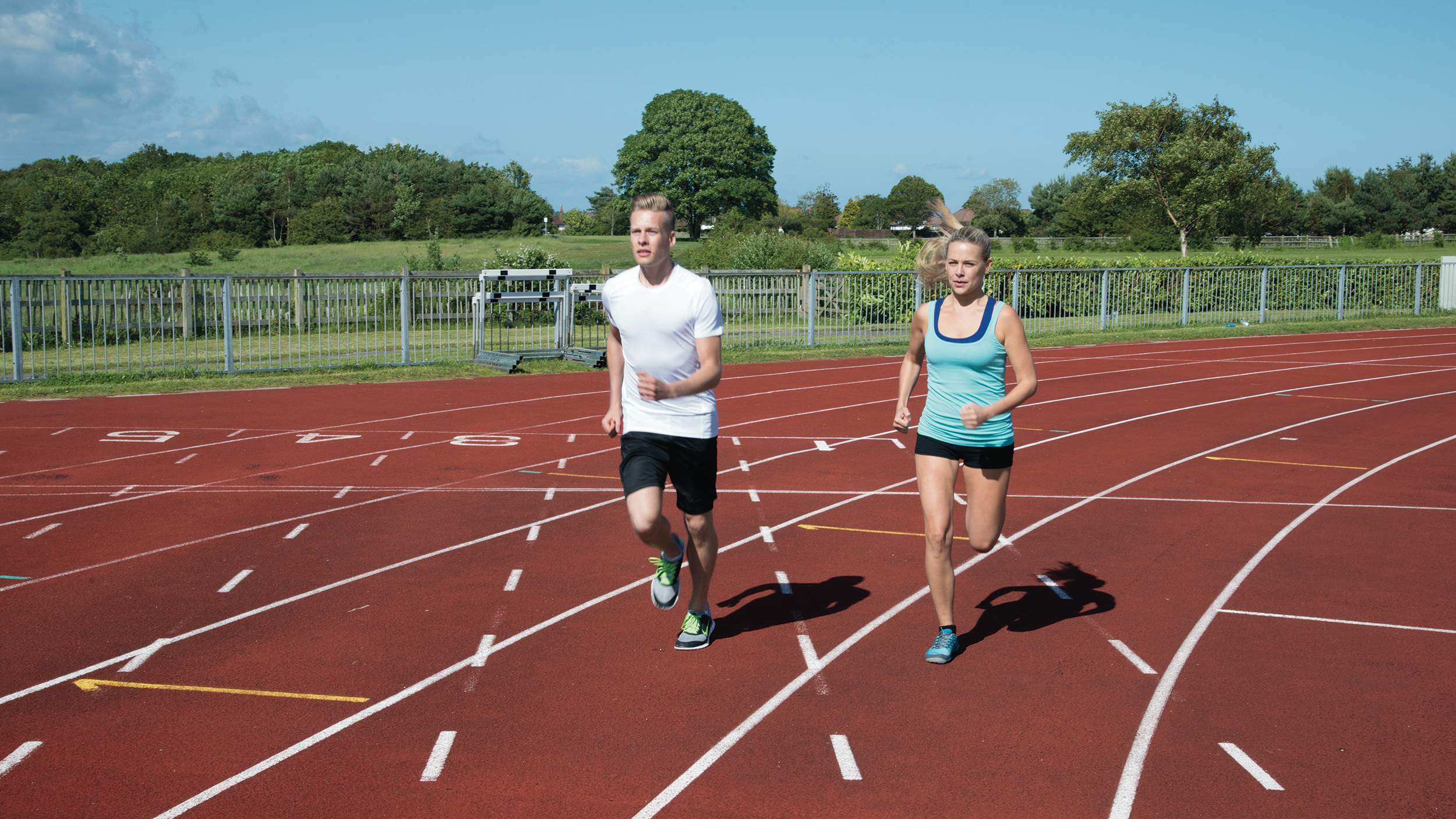What are the benefits of running?
Running has many physical and mental benefits. Here, we run through the key advantages

Nick Harris-Fry

Start your week with achievable workout ideas, health tips and wellbeing advice in your inbox.
You are now subscribed
Your newsletter sign-up was successful
Any form of physical exercise will help to improve your physical and emotional wellbeing when performed on a regular basis, and running certainly delivers those benefits, along with many others.
Whatever age you are, and however fit you are right now, running is the perfect sport to take up. It is cheap and easy to get started—all you need is some sports gear and a pair of trainers—you can do it anywhere, and you can fit it into the most demanding of schedules.
It may not feel easy to begin with, and you’ll initially spend a lot of time walking rather than running, but you’ll progress fast and enjoy the benefits of the sport from day one.
1. Running can help you lose weight

One of the most common reasons people start running is weight loss. If you are overweight or obese, running can help you get to a healthy weight, and if you’re there already, running can help you maintain it. Any kind of running burns calories and will help you into a caloric deficit if you combine it with a healthy diet.
If you haven’t exercised in a long time and are obese, then you will need to start out nice and slowly. The extra weight that you are carrying will put more stress on your joints, making it harder to run, so sometimes walking is the best place to start.
Once the weight starts to come down, you can begin a run/walk training program. As you get fitter and healthier, you can begin to do longer runs and start mixing up the types of runs you do to include speedwork, which burns more calories than steady running and will help you to keep losing weight.
2. Running is great for your health

Running is great for your cardiovascular fitness and can help reduce your risk of type 2 diabetes and heart problems. The heart is a muscle that feels the strain of aging, which is why the risk of heart disease, strokes and angina increases. You can help lower your chances of suffering these problems by ensuring that you are regularly working your heart muscles through cardiovascular exercise like running.
Start your week with achievable workout ideas, health tips and wellbeing advice in your inbox.
As well as strengthening the heart itself by increasing and decreasing heart rate, you are forcing the arteries to expand and contract to let the blood flow, which keeps them elastic. Exercise improves your circulation as well, which helps to reduce the chance of blood clots in the future, which can cause strokes and heart attacks.
3. Running increases the strength of your bones

Running is a weight-bearing exercise and this means that it will help you to increase your bone density, making bones stronger and less prone to breakages. This can help prevent the onset of osteoporosis, which is common as bone density decreases with age. It also helps you to prevent injury and stress fractures, and be able to cope better with the impact of running on hard surfaces.
However, because running is a high-impact sport you have to be careful when starting out not to overdo it. Make sure you follow a structured training plan that builds up gradually so your body is able to handle the impact of the sport.
4. Running is good for your mental health

The benefits of running are not just physical. There are a myriad of mental and emotional pros to this sport. Any kind of exercise can help to reduce stress in the short term, and your risk of depression in the long term, and running also adds in the benefit of being outside, especially if you can do it in a green place.
Running can also improve your memory and improve your decision-making, and you can get all of these benefits without having to do a huge amount of exercise—research undertaken at King’s College London suggests just 20 minutes is enough—and any kind of activity is better than none on this front.
5. Running is a great way to meet old friends, and make new ones

Whatever your aims are with running, it will be more enjoyable to share the sport with other people. Whether you enlist one or two existing friends with similar aims to become running buddies, or join a running club and make new friends, running with other people will keep you motivated to get out and train regularly.
These social interactions will bring mental benefits of their own, while helping you to stick to your running programmes to gain the physical and mental benefits of that. Meeting up with other people also helps you keep your running varied and engaging, as they will know new routes and have different ideas for runs you can try.
Launched in 2020, Fit&Well.com is all about helping you meet your health and fitness goals in ways that are fun and achievable. With news and features on fitness, weight loss, running, nutrition, yoga, wellness and more, we're committed to helping you wherever you are on your fitness journey. We break down the best fitness tech, with reviews, buying guides and the latest deals on fitness and wellness kit, from dumbbells to diffusers.
We cater for all difficulty levels here. It doesn't matter if you're a beginner in the world of fitness or you're gearing up for your tenth marathon: we're all moving towards the same goal – creating a healthier, happier you. From guides on getting started doing walks around the block, to creating the perfect work-from-home space, to eating to fuel your first triathlon. It's all here.
- Nick Harris-FrySenior writer
